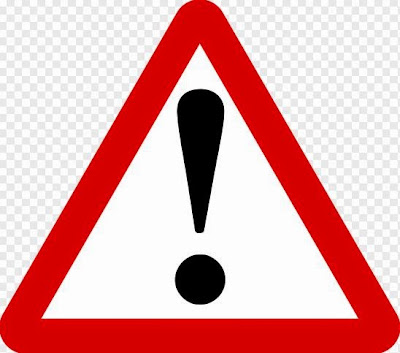Before you read this... realize this information pertains more to beginning-intermediate traders. Stocks like $PTBI $VLTC $ICLD, which I recently traded, have difficult to spot trends/pivot points. Plus, when the float is traded 2X, 3X or more in one day, there is a high likelihood of being squeezed if you are short. Until you have a built up mental resistance to drawdowns along with trading experience, these trades should be done with reduced size or possibly not done at all.
No reason to cut your teeth in trading difficult stocks or difficult strategies.
When I do tweet a trade in this type of stock, it is likely that I have found a better (for lack of correct adjective) entry point to short. So I will tweet the trade. However, the risk to get squeezed is still there.
Remember, some traders, usually ones with greater experience, ability and deeper pockets, can turn around the next day from a loss and trade at 100%, with a clear mind. However, this ability is not something that can be attained easily, likely not in the first year or two of trading. Most traders should recoup from the psychological damage from a large loss before continuing trading. I recommend reducing trade size or taking a break first, if you are not an advanced trader.
=======================================================
The article below is written about the 'angry trade' but even if you are not angry, the same scenario and outcome could result due to your damaged mental state.
From http://www.financial-spread-betting.com/strategies/revenge-trading.html
The ‘angry trade’ is the worst possible trade you can make. It’s usually done after a loss with a desire to get your own back, or more specifically to win back the money you’ve just lost.
There are several reasons it’s so bad:
1) It’s often not planned out properly. Whereas your first trade may have been carefully planned and may actually have been a sensible trade that just went wrong, more often than not the trade following it is an unplanned one that’s done in a hurry. More often than not it’s no better than gambling. You do it in such a hurry to win back your losses that you haven’t properly considered exit points and analysed the risk.
2) Quite often it’s a larger bet than the first one because you’re so desperate to win back what you’ve just lost that you want to do this as quickly as possible. And the quickest way to do this (according to your logic at the time) is to raise your stake size. Again, you’ve completely ignored the risk.
3) It’s an emotional trade that’s done for the wrong reasons. Your emotions have so overcome your normal rational decision making process that it’s quite likely that you’ve not factored in all sorts of other potential pitfalls (e.g. long-term support or resistance that you might be trading against).
The problem with the angry trade is that it often starts off a spiral. If it wins great, but the problem here is you’ve effectively won by gambling, and you might try to repeat that win by gambling again, without using anything more than gut instinct. This goes against all the rules of trading and will result in you eventually blowing your account. If it loses, as it’s more likely to do, then you’ve effectively dug yourself even deeper into the hole you were just in. This then results in an even angrier trade, and so on, leading to desperation and seriously increasing the chances of blowing everything in a short space of time.
Ask yourself, what caused this angry trade in the first place? Why were you so desperate to win back what you’d just lost?
The chances are that, although the first trade may have been a good one that didn’t work out, you hadn’t correctly mentally accepted the risk before you went into the trade. You may also have been trading too large a stake. A good technique is, before placing a trade, to always assume that it’s going to be a loser. Work out your risk this way. How much are you willing to lose on the trade? You need to see it in the long term perspective as a proportion of the capital that you’ve set aside for trading. This way, if it does lose, you’ll be ready for it. You will only have lost a small proportion of your capital (it shouldn’t really be any more than 2%) and you’ll better be able to deal with it. Then you simply have to try to forget about it. Do not let it affect your next trade. This is the hardest part and what divides the winners from the losers. If necessary, take some time out for example, don’t trade for another 24 hours – until you’re convinced that you’re in an unemotional state of mind that will make sure that your next trade isn’t an angry one – ie that it’s taking advantage of a beneficial opportunity (not just trading for the sake of it), that it’s properly planned out, and that you’ve properly calculated your stake size based on your risk limits.
This is another of those incredibly important lessons that you’ll do well to heed. Just remember, next time you have a loss, just stop. Accept that the money’s gone and that the next trade you make will be on its own merits, completely unconnected from the last one. This way and this way only will you progress from being a loser to being a winner.

1 comment:
Thank You for that blog post. It's a shame, that such great personalities as You, Bao, Nate, Nikko argue in such extent. You should all forgive each others mistakes. Let there be peace.
Krzysztof
Post a Comment